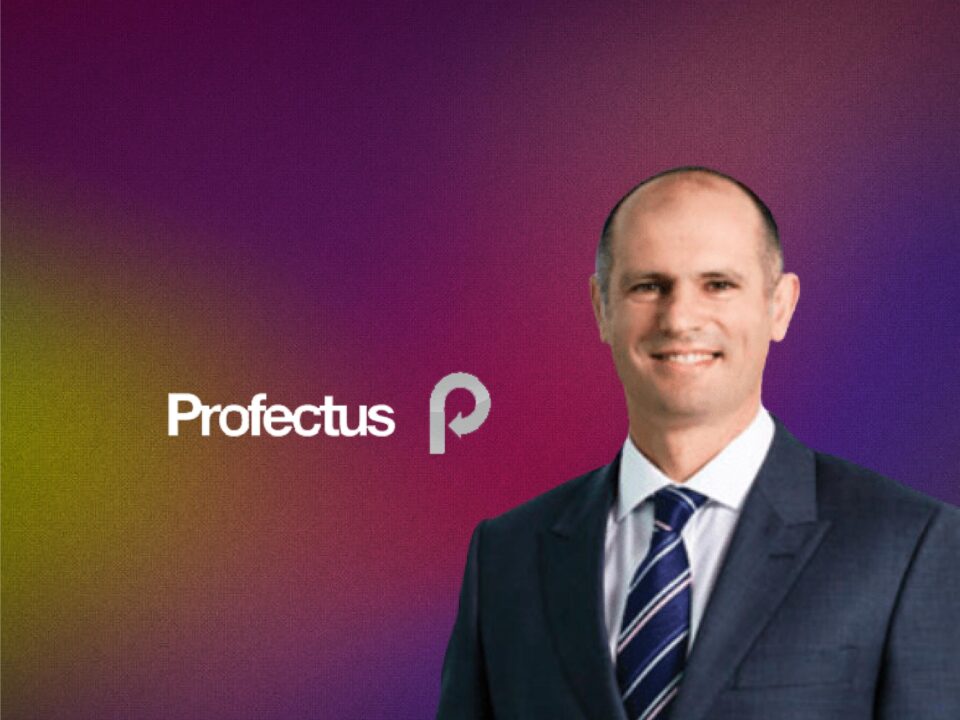There’s still a long way to go for financial institutions to establish better efficiencies through financial technology, Robert Visentini, Chief Product Officer at Profectus Group dives deeper in this chat:
_____
Robert, we’d love to hear about the Profectus group…how has the company and platform evolved over the years…?
The company was established based on its core strengths in data analytics and data management, and in analysing the accuracy of transactional data between large organisations and their suppliers. Our original service, which we continue to provide, is a detective control – which is detecting the inaccuracies and errors in how organisations transact. Historically, the only way we could work with organisations to fix the root cause of problems was through education and consulting.
Our technology solution evolved through our desire to detect problems and to help organisations better manage the accuracy of their complex accounts payable transactions. We look to assist in ensuring transactional accuracy in real-time, fixing the problems analytics discovers. Through technology, we were able to expand our service to fix problems ensuring accurate transactions and providing preventative controls.
Since investment into our technology platform 10 years ago, we continue to explore more effective ways to guarantee absolute transaction accuracy across the most complicated spend types for financial services and other sectors
Read More: Global Fintech Interview with Scott Purcell, CEO and Chief Trust Officer of Prime Trust
What are some of the biggest fintech and payments trends that you’ve been observing over the years?
Over recent years I’m observing a stronger desire to understand supplier invoice data at line item level (individual product level), allowing organisations to understand their cost drivers and optimise their spend. This strengthening focus is pushing banks and other large organisations to move away from manual supplier invoice data entry, to technology-enabled invoice capture at line item, further enabling spend classification at line item as well. This fast-paced trend was the driver for Profectus to partner with other best of breed technologies like Sisense and Snowflake.
How do you feel this market is set to shape up in the next few years?
I believe that the multi-billion dollar outsource model for supplier invoice capture will be under immense pressure to innovate through technology. Robotics and AI are starting to play a large part in the transition to line item data capture and data classification of supplier invoices.
When it comes to creating better financial efficiencies with automation, what are some of the key challenges you still notice financial institutions and banks make?
There are several areas that offer opportunities for better efficiencies through automation. Three of the most consistent challenges I see include:
- Supplier Issues Management: We continue to see manual (email) or spreadsheet-driven methods on how supplier issues are dealt with across organisations’ operational, finance and procurement teams.
- Collaboration between parties that transact: Effective collaboration through technology and the sharing of data is uncommon. As an example, most performance management reporting between a supplier and banks is via a slide deck.
- Consistent data labelling: We continue to see challenges across organisations on how transactional data is labelled to assist with reporting and spend optimisation. It is common that one transaction is labeled differently for budgeting, spend category management, and business line reporting.
Read More: Global Fintech Interview with Mark Williams, CFO at Sinequa
Can you talk about some of the most exciting technologies and innovations from around the world that you feel are set to create new standards for financial services?
I am starting to see an emergence of specialised spend management providers, focused on the end-to-end management of just one spend category. We have always had some specialisation in this space with telecommunication or freight and logistics, however I am seeing the expansion into categories like credit cards, that are unique and very specialised to one industry.
This trend shows the financial services industry acknowledges specialised technology works best with their specialised teams and highlights the deficiency of some of the globe’s largest Purchase Management System technologies.
As global fintech trends change and the market shifts due to business environments (and also Covid-19), what are your comments on the state of fintech in 2021?
2021 will be a “best ever” year for global fintech, and I believe I will be well placed to say the same for each year of the next decade.
We’d love to hear about some of Profectus Group’s upcoming plans and innovations?
Organisations and suppliers spend billions on reconciling the accuracy of transactional data and managing complex agreements. In 2021, Profectus is looking to expand its technologies and products to substantially remove these costs.
Our Products will advance collaboration between transacting parties, enable data sharing, automate reconciliation, and allow organisations to learn from the data.
In 2021, Profectus is also leveraging global AI-driven analytics platform, Sisense, to help save Australian businesses hundreds of hours in compliance time for the newly enacted Payment Times Reporting Scheme (PTRS).
Effective as of January 1 this year, PTRS requires businesses and government enterprises with an annual total income of over $100 million to biannually report on their payment terms and practices for their small business suppliers. These reports will then be made publicly available via the Department of Industry’s PTRS website.
The Payment Times Reporting Scheme places considerable pressure on businesses to both surface data and report on payment times swiftly and publically. Profectus has partnered with Sisense to take a highly automated and data-driven approach to this PTRS compliance, in order to save businesses time and money by:
- Submitting the reports to the Department of Industry on the organisation’s behalf,
- Setting up reporting for multiple entities,
- Gaining access to live remediation reporting via its Delta BI platform (powered by Sisense), and
- Providing visibility of progress against the PTRS metrics.
Profectus is actively engaging with the Australian Government to discuss the report submission process, challenges in data collection and accuracy, and communicate to large organisations about upcoming timelines as the PTRS is rolled out.
Read More: Digital Banking: Transformation or Trepidation?
Before we wrap up, a few biggest learnings and tips you’d like to share with fintech innovators and leaders?
More customer interaction: As the speed and agility of innovation continues to increase, your customer interaction can also increase for feedback, updates and product innovation. Capturing customer feedback can lead to significant business improvements and performance.
- Automate: Many established businesses are still using manual spreadsheets to track financial data. This leads to significant time wastage and human error. Automation improves accuracy and helps organisations find cost savings.
- Accurate capture and cleaning of data: Much data is siloed across organisations, or is historical and not accurate. The uniting of clean data for analysis is vital for improved business performance.
- Using data for spend analysis finds on average a saving of 1-5%: Profectus discovered that on average, between 3.5-4 transactions per 10,000 financial transactions contain an error. This can add up to millions of lost dollars each year.
- Using data for price comparisons, rebates, contract compliance and deal management: Profectus reviews hundreds of thousands of invoices and agreements on behalf of its customers. It recognised it needed to be able to do this faster, while boosting the productivity, efficiency, and accuracy of processing these vast volumes of data at scale to find cost savings and better spend optimisation.

Profectus enables major organisations to maximise value from their complex business-to-business transactions by delivering absolute transactional accuracy through world-leading technologies. With offices in Australia, NZ, USA and Vietnam, Profectus’ technologies and services include contract compliance, rebate and deal management and recovery audits for global companies including Westpac, Coles, BHP, Kmart, Fonterra, Myer, Repco and Asahi, just to name a few.
Robert has significant business experience in building the steady growth of an international technology and services company, Profectus Group. He founded Profectus in April 2001 and the company name is Latin for “progress and profit” which is the core driver for the business. He has since grown offices in Sydney, London, New York, Vietnam and New Zealand with more than 150 employees. After 20 years as the Profectus CEO, in October 2020 Robert moved back into leading the innovation and development of the Profectus technology platform.
As a natural entrepreneur and leader, Robert is reputed among the ASX100 companies for helping streamline their Procure To Pay and compliance systems, and creating greater efficiencies and finding and delivering otherwise lost money. Robert’s previous academic and work experience in accounting and information systems is what led to the vision of the company. Robert also attributes his success to: understanding the complexities of the finance landscape; building rapport and strategy with clients who have very specific and individual demands; and having the technical expertise to build, implement and deliver solutions to help clients significantly improve their market position.
